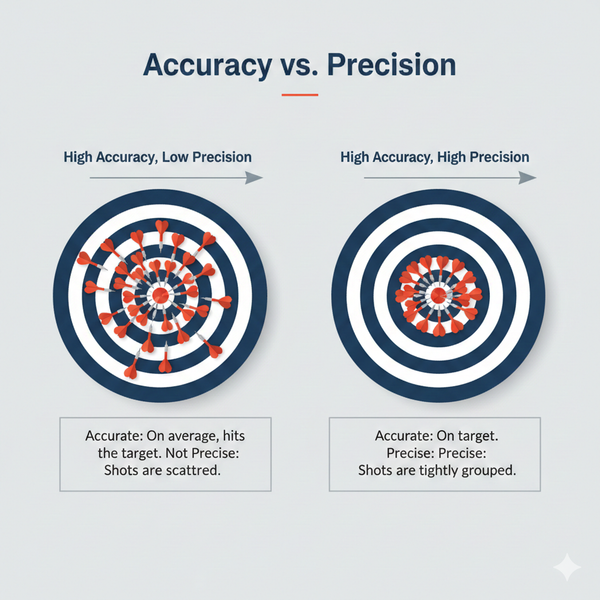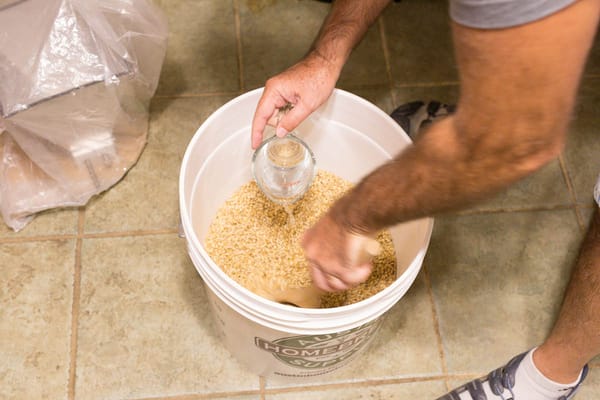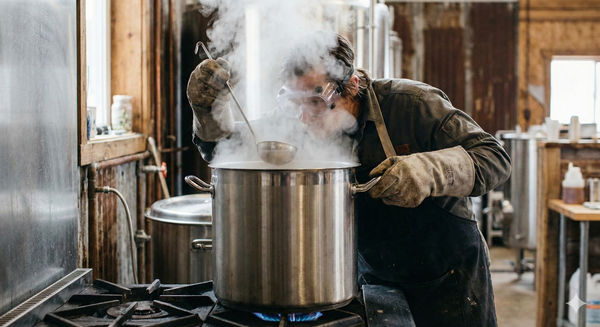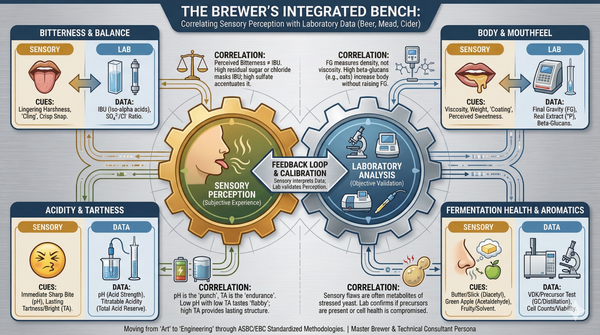On Brewing Competitions, Competitors, Rules and Ethics
We need an honest and direct discussion about brewing competition. Of course, being a homebrewer, I am mainly focused on amateur beer, mead, cider, and wine competitions, which often also have a commercial or professional track. Here in 2024, competition stakes are very high, and success is critical

We need an honest and direct discussion about brewing competition. I'm not intending to call out anybody or organization here. I sincerely have no dog in this hunt, besides my small competition history and how it made me work harder. Of course. As a homebrewer, I am mainly focused on amateur beer, mead, cider, and wine competitions, which often also have a commercial or professional track. Here in 2024, competition stakes are very high, and success is critical to promoting the hobby, which is shrinking in a very stark manner.
Multiple national competitor groups, such as the Master Homebrewer Program (MHP), have been formed to encourage member competition and rank against different criteria. The groups are filling up competitions that have, in many cases, opted into that group's competition circuit. The higher you place, the more medals you obtain, and the better your rank. Given the current costs of materials, entry fees, and shipping costs, entrants are investing an incredible amount of money. Get on that entry page when the competition opens because maximum entries will likely be met within a few hours. While I have misgivings, these groups drive competitive homebrewing, promoting and propping up a shrinking community. A prepared comp organization can take advantage of the built-in entries from circuits.
A competition, most likely all volunteer labor and organization, is designed to provide skilled, written feedback and the opportunity to win a prize. In a broader sense, they create excitement and reinforce the homebrewing hobby. Usually, there is a fee per entry with rules or guidelines regarding entrant eligibility, the judging criteria, and the details. Competitions live and die by the word-of-mouth quality of the competition, the coolness of the prizes, and the competence of execution. Modern competitions must analyze their ability to scale to arbitrary entry sizes and communicate elegantly with their entrants, coordinators, judges, and stewards (reminder - all volunteers). Further, entrants are demanding live-streamed result events, increasing the complexity and expense of the competition.
Remember that the relationship between a competition and an entrant is a contract, written and unwritten. Problems in ambiguous areas of rules, mishandled or wrongly categorized entries, or bad feedback can harm the hosting club and the competition's reputation. We'll cycle back to this at the end.
Let's pick on competitors. Please read the rules and follow them. RTFM. Accept that the competition is run by volunteers, many without experience. Be patient. Accept that good judges, capable of writing great score sheets, are hard to find. Accept that even the best judge makes mistakes, and judging is subjective. Great competitions review score sheets and manage their judge pool to provide the best result for entrants. Don't just give lousy feedback to organizers; a positive comment encourages those volunteers to return!
Can we trust that both the entrant and the competition organizers are ethical, thereby ensuring the expectation of fairness and fair play? Most times, both parties are reasonable. Not every entrant tries to cheat, cheese, or scam a competition. I assure you nobody volunteering to sort a competition is intentionally smashing or misplacing entries. How did we get offensive/defensive state when we should be cooperating?
We need to discuss this weirdness around entrant eligibility, specifically commercial versus amateur eligibility concerns. If we trust the entrant and the competition organizers are being ethical, we have a fair and equal playing field.
I am not eligible to enter many competitions because I formerly worked as the general manager of a commercial meadery. Drawing the line between production and management is laughable. Production is often all hands, in the cellar, canning, or in the lab. Running a canning line or operating a forklift gives me no measurable advantage as a homebrewer. Some competitions have cool-down periods, such as 2-3 years, but the proof is still the word of the entrant. It's a lot of friction. I'm not alone here.
I recall competitions from the past that only required entries to be brewed or made at home and on typical homebrew equipment. Today, standard homebrewing equipment can include fully automated brewing systems that are far more sophisticated than commercial gear. Does it matter that many homebrewers have a deeper scientific understanding of mashing, fermentation, and water chemistry than many commercial brewers?
How do we deal with YouTubers, Instagram, or TikTok? These people might earn money from views, Patreon memberships, or merchandise. Does this give them an advantage as a homebrewer? Are they technically a commercial entity? How would licensed commercial meaderies feel if an influencer cleaned up medals on the Professional track? These folk are integral in continuing to promote the hobby and bringing in younger and different demographics through social media!
There are few oversight organizations for competitions, especially regarding eligibility. We must be clear that the AHA/BA and the BJCP provide guidance or sanctioning but do not practically act as a governing agency. Many comps accept the National Homebrew Competition boilerplate rules from the AHA. Most comps differ from the NHC's size, scale, and culture, and regulations should reflect the spirit of the competition and the club that organizes it. BJCP trains judges in critical evaluation and communication skills needed to be a good judge. That leaves only the entrants, voting with the participation dollars, to hold competitions to an undefined standard with a lot of moving criteria.
Note: The American Mead Maker Association evaluates competitions for the National Mead Maker of the Year circuit in much the same manner as a competitive club or group and can add or remove competitions from its circuit. This has a significant effect on competitive groups, competitions, and their entrant's willingness to spend on entries.
Suggestions and Solutions
- Competition organizers need to write their Terms and Conditions to represent that club and the competition's culture and ethos.
- Create Rules for Eligibility and Disqualification that are specific and not open to interpretation.
- Define the distinct criteria for Amateur and Commercial competition tracks.
- Define Amateur and Commercial tracks, details, and eligibility.
- Include confirmation language and programming (BCoS, BAM, etc.) specific to Amateur or Commercial entries, certifying that the entrant follows the relevant rules and tracks and is eligible.
- Outline specific procedures that detail the steps of disqualification, including open communication between organizers and entrant.
- Steps and processes for handling errors, especially when an entry is mishandled or miscategorized. Be clear: WHO has the final word and decision, and how is that decision made?
- Create a section detailing an entrant's Bill of Rights and codify those rights with the rules.
- Competitive Groups and Clubs (such as MHP)
- Document ethical rules for members, including accepting certain behaviors when conflicts arise
- Hold members accountable
- Reward/Encourage good behavior
- Discourage illegal trading and unlicensed business promotion.
- This is specific to promoting a regulated alcohol-related business with branding before TTB/ABC licensing through the "trading" of products to circumvent a taxable direct sale.
- A declaration of the intention to go professional, particularly in social media, will attract scrutiny, making the statement of eligibility in a competition significant. But the open statement of intent, with general timelines, will provide a comp with at least some data to make a fair assessment.
- Work with Competitions to improve the following:
- General Communication
- Handling conflicts and expectations
- Scaling competition size to ensure excellent judging
- Document ethical rules for members, including accepting certain behaviors when conflicts arise
Let's revisit the earlier contract statement to drive this home. Organizations running competitions are making an offering, in exchange for entry expenses, shipping, materials, and usually a fee, for fairly evaluating the entry and an opportunity to earn a medal placement. While this isn't a T&C for an Apple iPhone, it is the roadmap to setting expectations and removing unwritten perceived expectations that are just no fun to deal with. I am suggesting a lot of work - I realize that. Competition groups and circuits have abandoned some competitions because of ongoing problems and social media backlash; other comps have backed out of circuits. Circuits and competitions are critical to keeping the hobby relevant and exciting, so consider your audience. Is it really to give that hyper-experienced medal winner yet another bit of tin? Or is it to celebrate homebrewing, provide a vehicle for fair and unbiased evaluation, and encourage more participation? Is that how your rules are really written?
Peace.




